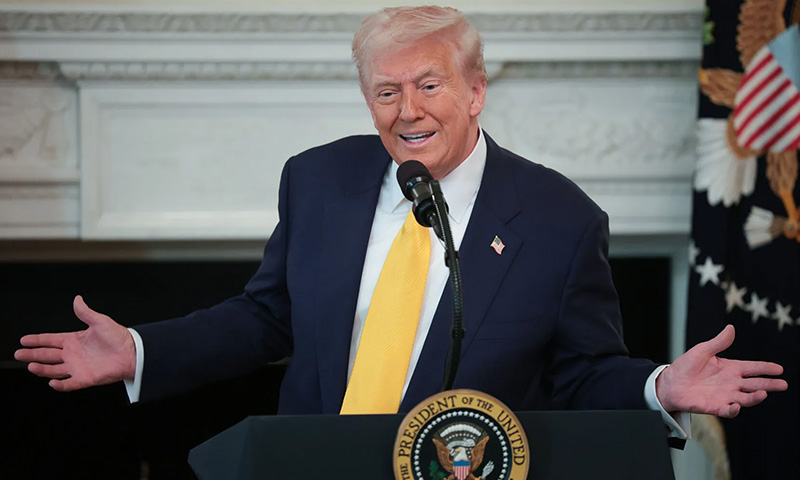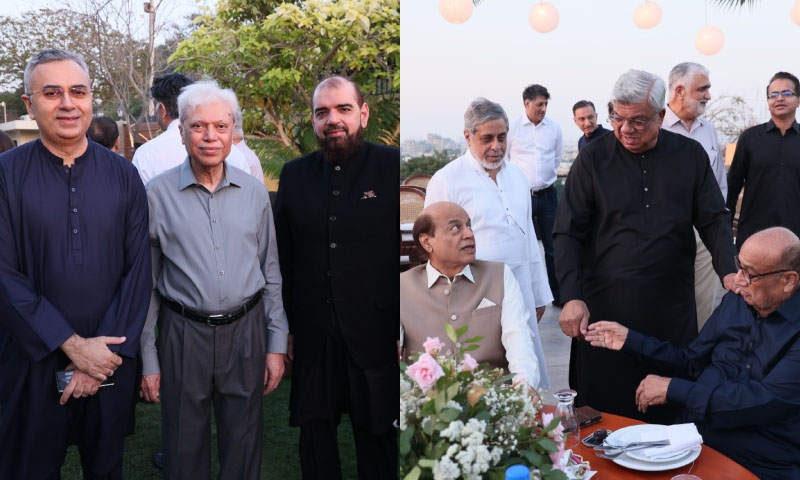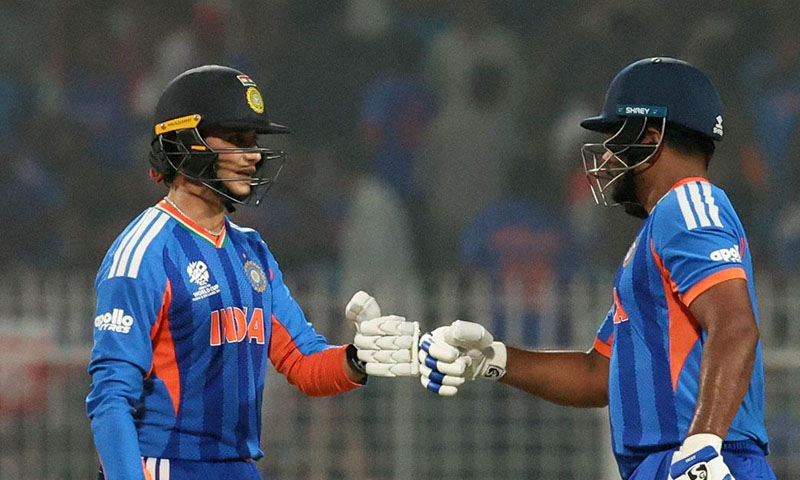- Web
- 16 Minutes ago
Trump says tariff threat stopped Pakistan-India nuclear clash
-

- Web Desk
- Nov 20, 2025

US President Donald Trump stirred fresh debate on Wednesday after telling a Saudi investment forum that he had once stepped in to prevent what he described as a possible nuclear clash between Pakistan and India. His remarks came during a wide-ranging speech that moved between foreign policy anecdotes and his views on global trade.
Trump’s claim of intervention
Addressing the audience, Trump said he had been alerted to a worsening situation in South Asia during his time in office. He claimed both countries were on the brink of a serious military confrontation that he believed could spiral into a nuclear exchange. According to him, the United States warned both capitals that Washington would impose a heavy tariff if the crisis escalated.
Trump said he told the two sides they were free to move ahead, but that each would face a 350 percent tariff. He framed the move as a tough message meant to push both governments away from the edge.
He went on to say that leaders in Islamabad and New Delhi resisted the warning but that he refused to shift. Trump then recounted a call he said he received from Prime Minister Shehbaz Sharif, who he claimed thanked him for preventing a disaster. He also said Indian Prime Minister Narendra Modi phoned shortly afterwards to indicate the crisis had cooled.
Pakistan angle and broader remarks
Trump’s comments drew attention partly because he rarely speaks at length about his dealings with Pakistan. His version of the events, presented in his trademark storytelling style, touched repeatedly on the idea that economic pressure and tariff threats were his main tools for calming tensions.
The speech later moved to other topics, including Sudan, where Trump said Saudi Crown Prince Mohammed bin Salman had encouraged him to help resolve a dispute. He admitted he had not planned to engage on the issue but suggested he might now look into it.
Throughout his address, Trump returned to a broader point that several international disputes during his presidency were, in his view, settled through economic leverage. He argued that few US leaders were willing to rely on such tactics, presenting it as a hallmark of his approach to foreign crises.
While his claims were met with curiosity and some scepticism, they added another layer to his long-standing habit of portraying himself as a dealmaker who could defuse global tensions through pressure and personal outreach.




